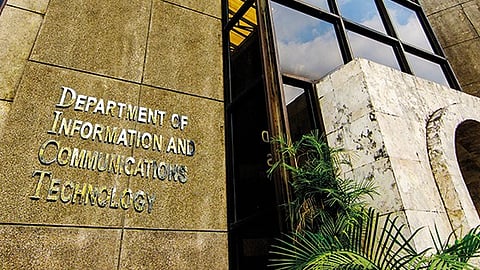
- NEWS
- the EDIT
- COMMENTARY
- BUSINESS
- LIFE
- SHOW
- ACTION
- GLOBAL GOALS
- SNAPS
- DYARYO TIRADA
- MORE

Amid various reports of data breaches in government websites last year, the Department of Information and Communications Technology (DICT) bragged that they have deterred about 60 advanced persistent threats (APTs), more than half of which are Chinese groups targeting Philippine agencies.
“Of the 60 APT groups deterred, approximately more than 30 are associated with Chinese groups,” said DICT Undersecretary for cybersecurity Jeffrey Ian Dy in a forum on Saturday.
Further, he added that aside from Chinese groups, some small groups have been detected to be coming in from Russia, North Korea, and some other Eastern European countries.
“But a majority of them are associated with Chinese groups,” Dy said.
Further, the DICT official reported that about 5.4 million malicious attempts against 32 government agencies connected to the national security operations were foiled by the DICT.
“We processed 2,500 cases, 60 of them from advanced persistent threat (APT) groups. Kapag sinabing advanced persistent threat groups -- these are state-level types of hacking, 'yung super complicated,” according to Usec. Dy.
APT is a broad term used to describe an attack campaign in which an intruder, or team of intruders, establishes an illicit, long-term presence on a network in order to mine highly sensitive data, according to cybersecurity leader Imperva.
The targets of these assaults, which are very carefully chosen and researched, typically include large enterprises or governmental networks.
The consequences of such intrusions are vast, and include: intellectual property theft (e.g., trade secrets or patents), compromised sensitive information (e.g., employee and user private data), sabotaging of critical organizational infrastructures (e.g., database deletion), and total site takeovers.
In April 2024, the National Privacy Commission said a personal data breach within the Department of Science and Technology (DoST) transpired, in which initial findings indicate that the breach includes the personal data of roughly 600 data subjects, all of whom are employees of DoST.
Private companies were also not spared from data breaches last year, as Toyota, Robinsons Land, and grocery chain S&R also suffered a possible hacking of their databases.
In a recent survey by cyber defense company BlueVoyant, an average of 84.5 percent of Philippine organizations suffered from cybersecurity breaches last year.
The report also revealed that 24 percent of Filipino respondents have no way to detect this threat within their spheres, underscoring major visibility challenges.
